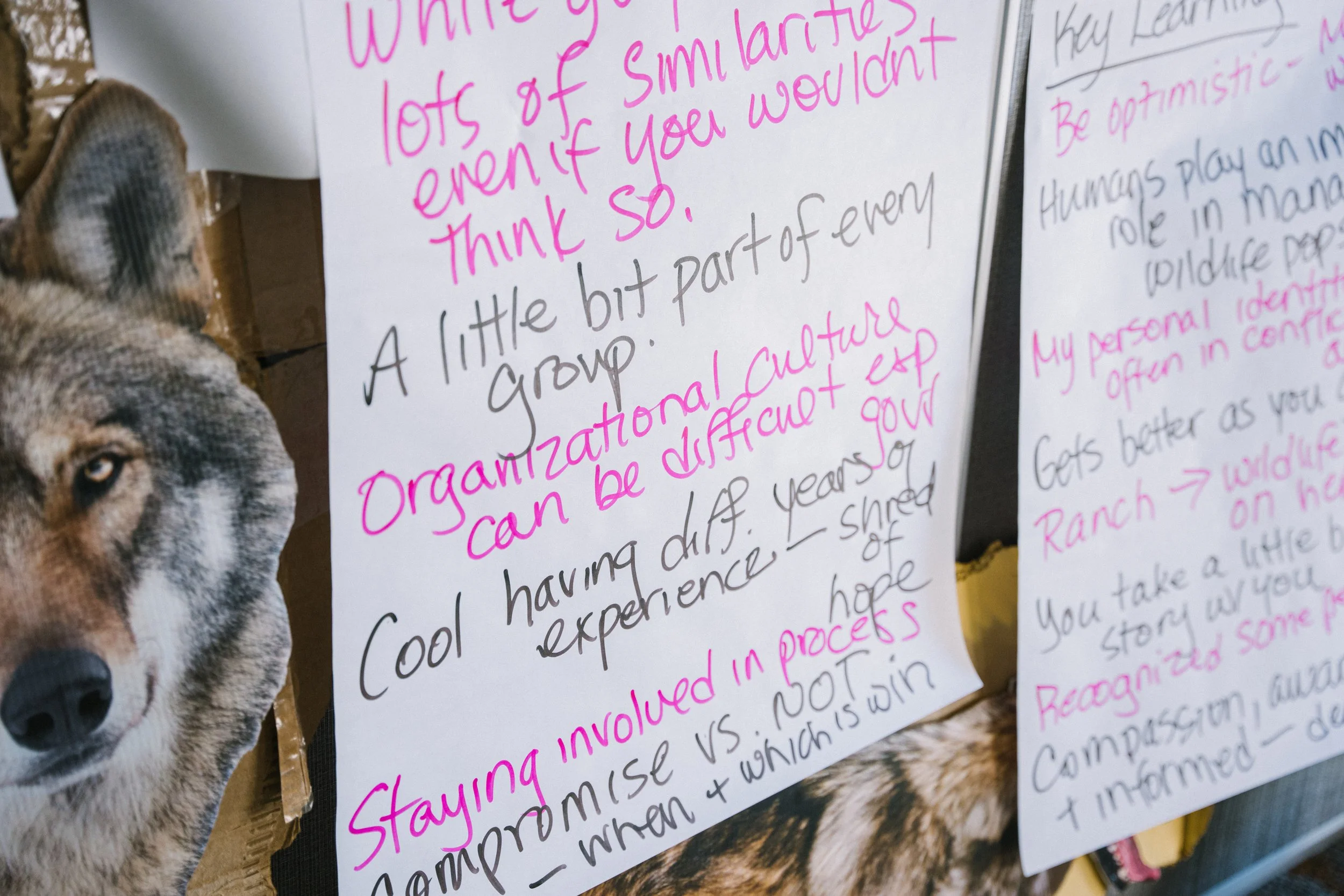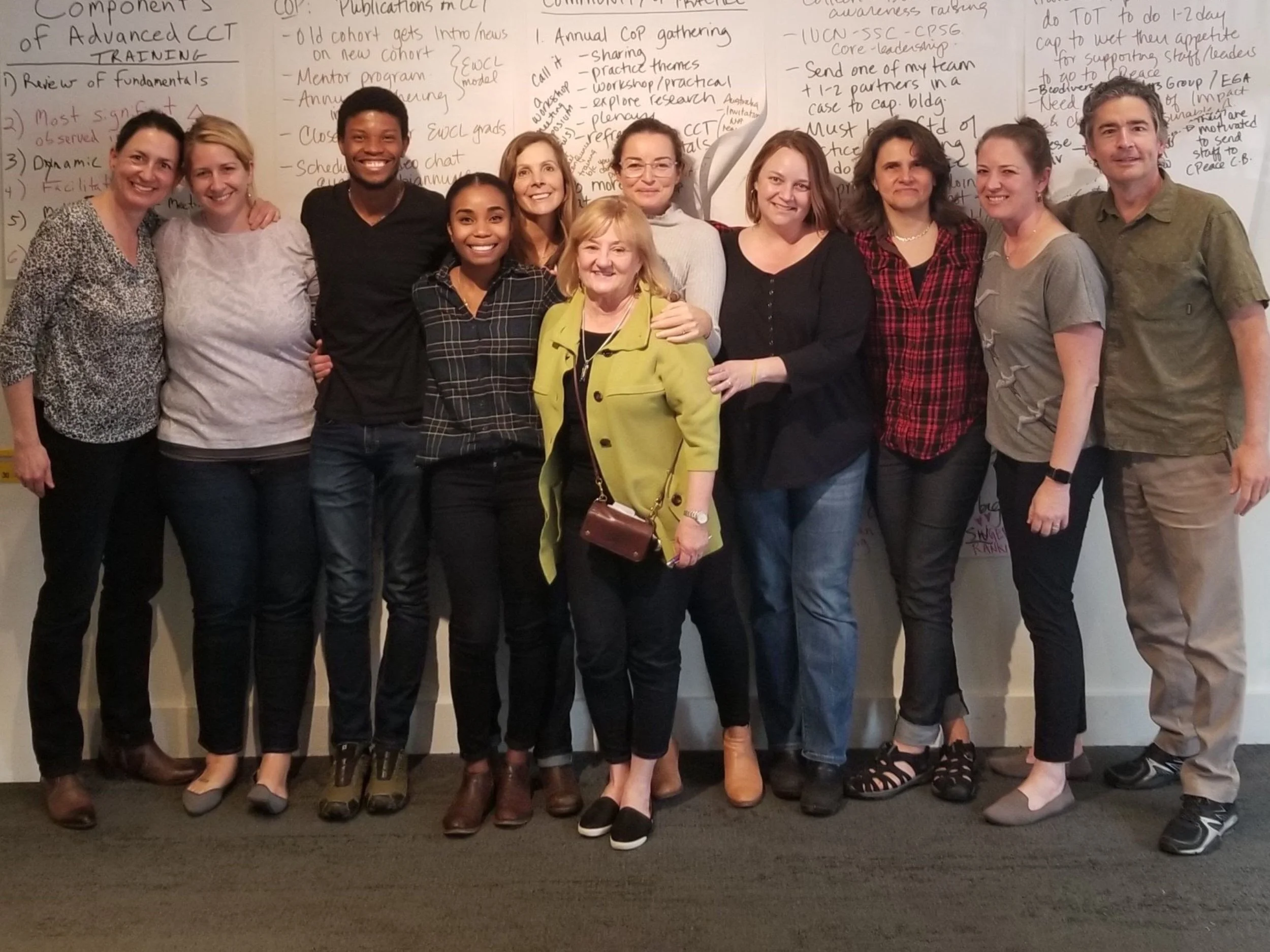About Us
What We Do
We help people thrive in conflict. As third-party neutrals, we focus on building durable relationships, effective processes, and lasting outcomes. Respectful, trusting relationships lay the foundation for solving problems together over the long term.
Why It Matters
Destructive conflict harms people, communities, cultures, and wildlife. Transforming conflict creates the conditions for all to thrive.
What We Deliver
Durable relationships - because reconciling relationships lays the foundation for people, communities, cultures, and wildlife to solve problems together - for the long term.
What is Conservation Conflict Transformation (CCT)?
“CCT is the truest path to collective problem solving....It will forever change how you view and engage in conflict.”
“You succeeded in building unbelievable trust between the original members of Wolf Advisory Group and created the opportunity for shared, constructive problem solving that is needed to resolve very difficult wildlife management and social issues..I will never forget your passion for trust and collaborative problem solving! ”
Destructive, deep-rooted social conflicts can erode wildlife conservation efforts as well as a community’s way of life. Conservation conflict transformation (CCT) provides a way of thinking about, understanding, and addressing such conflicts. To develop CCT, CPeace drew on a variety of disciplines, including peacebuilding, neurology, social psychology, behavioral economics, and systems theory. CCT is a positive process by which complex, multilayered conflicts are transformed into opportunities to both address the presenting problem and meet deeper needs.
As the global leader in conservation conflict transformation (CCT), the Center for Conservation Peacebuilding leads, integrates, and empowers CCT efforts in a variety of locations and at different scales of conflict. The organization formed in 2006 based on recommendations from conservation, community engagement, and peacebuilding professionals seeking a better way to address intractable conflicts around wildlife conservation. Since then, CPeace has supported thousands of people across the globe in their efforts to prevent and reconcile complex conflict.














Meet Our Leadership
Francine Madden
Executive Director
For over 30 years, Francine Madden has a proven track record of effectively, impartially and devotedly intervening in complex, controversial fish, wildlife and other natural resource conflicts. Francine uses these lightning rod issues as entry points to reconcile the deep-rooted, systemic conflicts that impede stability and progress for communities and conservation, citizens and governments. By engaging as a third party neutral and transforming the relationships and dialogue processes, Francine provides critical, comprehensive and unique support toward lasting shared wins for people, their way of life and conservation. Francine’s work has been featured in The Washington Post, Bloomberg Businessweek and Wall Street Journal.
Kim Wolfenden
*On indefinite leave for family matters*
Deputy Director
For over two decades, Kim Wolfenden has led community engagement programs addressing highly controversial wildlife conflicts across Australia, where communities have experienced trauma and tragic loss of life. Whether it is working with people and communities impacted by bats and emergency animal diseases, or following shark incidents on Australian beaches, Kim’s dedication to authentically connecting with and among people with different views and values has contributed to reducing harm to people, communities, and wildlife.
In 2013, after grappling with complex biosecurity conflicts, Kim traveled to the U.S. to attend CPeace’s Conservation Conflict Transformation (CCT) workshop - an experience she describes as a “complete game changer.” Returning to Australia, she began integrating CCT principles, tools, and strategies into her team’s broader approach.
Her work led to Kim being awarded a prestigious Winston Churchill Fellowship to investigate conflict transformation strategies across five continents.
Today, Kim proudly serves as our Deputy Director, bringing her journey full circle. She combines her deep passion for CCT with years of field experience to support others as they navigate their own challenges.



